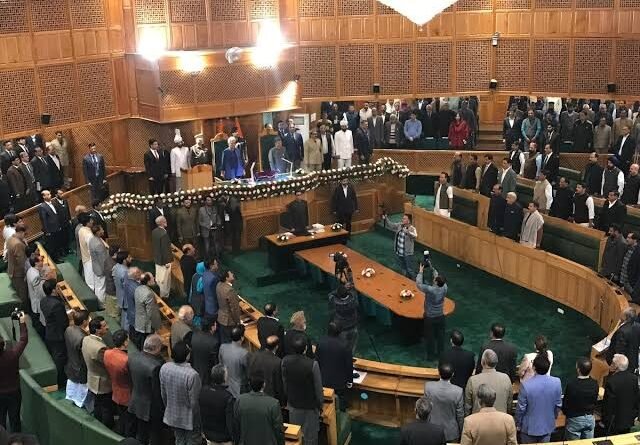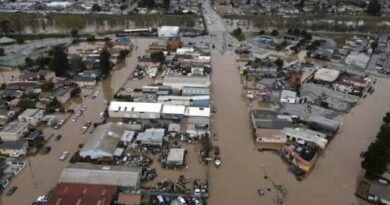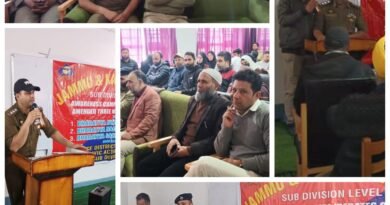Tensions Erupt in Jammu and Kashmir Assembly Over Article 370 and Ideological Clashes
Tariq Bhat
On the fourth day of a long-awaited session, the Jammu and Kashmir Legislative Assembly witnessed intense confrontations as members clashed over slogans and ideologies, disrupting proceedings and revealing deep-seated divisions. The rift unfolded as representatives from the Jammu and Kashmir National Conference (JKNC), the Bharatiya Janata Party (BJP), and other regional parties debated the restoration of Article 370, a controversial issue that remains central to the region’s identity and autonomy.
MLA Handwara Sajad Lone, PDP members, and AIP MLA Sheikh Khursheed put forth a fresh resolution urging the restoration of Article 370 and Article 35A, which granted Jammu and Kashmir special autonomy until their abrogation in 2019. This move was seen as an attempt to strengthen the call for autonomy beyond the initial, less definitive resolution by the JKNC. However, the differing views on the level of support and specificity for the restoration resolution added tension, intensifying the ideological standoff.
As the resolution was submitted, members of the JKNC and allied parties raised slogans of “Allah-u-Akbar,” to which BJP members countered with chants of “Bharat Mata ki Jai.” The Assembly quickly descended into a clash of ideologies, with neither side willing to back down. These chaotic scenes mirrored the ideological divisions that have permeated political discourse in Jammu and Kashmir since the revocation of Article 370.
Following over a decade without elections, the return of democratic processes in Jammu and Kashmir stirred optimism among residents hoping for attention to urgent local needs such as infrastructure, healthcare, employment, and education. However, as ideological conflicts dominate the Assembly sessions, many citizens feel disheartened.
Farooq Ahmed, a shopkeeper in Srinagar, voiced his disappointment, saying, “This was a historic opportunity for our representatives to address critical needs. We waited years to have a voice in the Assembly, but it feels like personal agendas are overshadowing the needs of the people.”
This Assembly session was meant to mark a turning point, with the region’s newly elected leaders expected to prioritize pressing developmental issues. However, with sessions focused on ideological divides, the public’s expectations of tangible progress seem to be sidelined. Issues such as unemployment, infrastructure, and social services remain unresolved, and many fear that the Assembly’s energy is being misdirected.
As the session continues, the challenge for lawmakers will be to move past ideological conflicts and collaborate on addressing the urgent needs of their constituents. High unemployment rates, stalled development, and economic instability demand attention, and residents across Jammu and Kashmir are eager to see if their representatives can rise above their differences to work toward a stable future.




